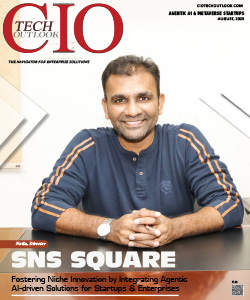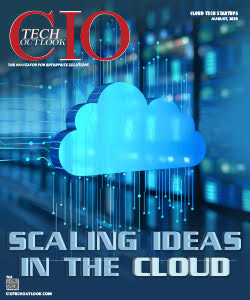The Shift towards Industry-Specific Cloud Solutions
Janifha Evangeline | Friday, 11 March 2022, 11:27 IST

Industry clouds - the latest innovation that is certainly going to boost cloud deployment and provide great value to a large range of industries is a collection of cloud services, tools, and applications. Industry cloud solution providers, as well as major public cloud providers, also render a diverse range of software and services, that include industry-specific applications, from partners. For instance, Tech giants such as Microsoft and SAP partner to offer SAP supply chain solutions using Microsoft Cloud for Manufacturing.
Industry clouds are of interest owing to their potential to create value for customers as well as public cloud providers. The well-established enterprises in industries from cloud-native disrupters are good prospects for such types of solutions since it is important for them to move their core business applications to general-purpose public clouds. However, it can be challenging as they most often rely on homegrown legacy applications or industry-specific software that is designed for on-premises data centers. These organizations face a difficult choice.
While simply ‘lifting & shifting’ applications to the cloud would lead to sub-optimal performance, either rewriting or optimizing them for the cloud will be time-consuming and expensive, industry clouds possess the potential to augment and take the risk out of their cloud migrations.
Addressing industry-specific requirements
A most essential constituent of an industry cloud is that it has to address the specific requirements of the industry it is designed to serve. For instance, healthcare providers have a high priority on improving the patient experience but also need high levels of data protection, privacy & security. These are necessary for demonstrating compliance with HIPAA (Health Insurance Portability and Accountability Act) regulations.
Another instance is where financial services companies value data analytics and Artificial Intelligence for customer insights while new product development and trading applications require latency measured in fractions of a second. Similar to healthcare, the financial services sector is highly regulated. Lastly, particular characteristics of the retail industry have the need to continually collect as well as analyze large sets of data for improving inventory management.
For a few of these aforementioned requirements and specifically when there exist many in combination, the general-purpose cloud solutions may not suffice. And given, this has been the main focus of many migrations so far and most of the traditional organizations in highly competitive industries have been left behind in the race to the cloud and this means these organizations are not realizing anywhere near the value that they can from adding public clouds to their IT infrastructures.
In addition to the public cloud, there are various industry-specific SaaS options and also new ones that are emerging in this sector. In the healthcare industry, there are EHR (electronic health record) SaaS options available and healthcare SaaS offerings include critical functions that comprise billing & supply chain. Another real-time instance is the pharmaceutical & life sciences industry as Pharmaceutical SaaS offerings buttress clinical, medical, & compliance functions.
SaaS continues to be the top cloud migration choice
The significant point to highlight is that Software as a Service has been & continues to be the top cloud migration choice, according to Gartner. Since SaaS is an excellent choice for supporting industry-specific needs, the big hyperscalers have taken notice of it.
“Sometimes, even it makes more sense to move service to SaaS instead moving any on-premise service to cloud. Though cloud is a future and path to support digital transformation journey of an enterprise but as a custodian of enterprise data and proprietary one has to be cautious while selecting the path of cloud journey,” says Pankaj Gupta, Global IT Director, Boston Consulting Group.
Given the opportunity in industry clouds, it is not surprising that tech giants such as Amazon, Microsoft, Google, and IBM now all provide a wide range of industry-specific cloud solutions. For long-established companies such as Microsoft & IBM, this development reflects that of their computer and software businesses, which evolved from offering customers technology to address their business problems.
Industry clouds are a logical next step in the ongoing maturation of public clouds for all public cloud providers. This opportunity has also got the attention of cloud service providers who render support for mitigating industry-specific applications to public clouds.
Advantages of industry cloud
The major advantage of the industry cloud is that it addresses the challenges of systemic risks that many enterprises face with regulatory, security, & compliance. Furthermore, there are other merits that include Focused spending, customized holistic solutions, improved operational efficiency, deeper customer engagement, and standardized configurations.
Conclusion
While the major public cloud providers are building industry-specific clouds for a proliferating range of industries, not all of them are yet covered. Every enterprise will require to weigh the benefits of waiting for their sector to obtain a high-quality as well as a comprehensive cloud platform, the important benefits such as cost savings & agility enhancements that are gained from switching to a public cloud now. It is also important for organizations to make sure that the industry cloud proposition actually works well for them and matches their requirements completely.



.jpg)
